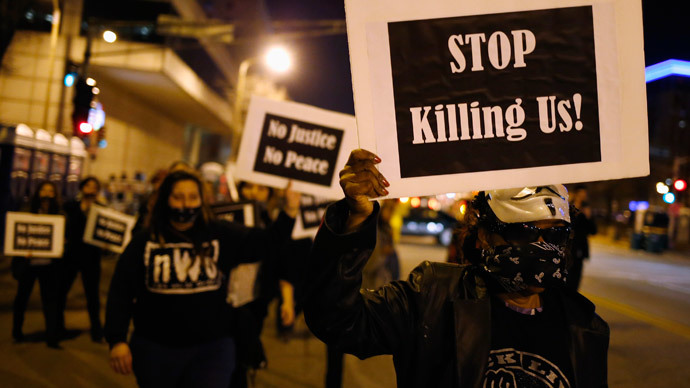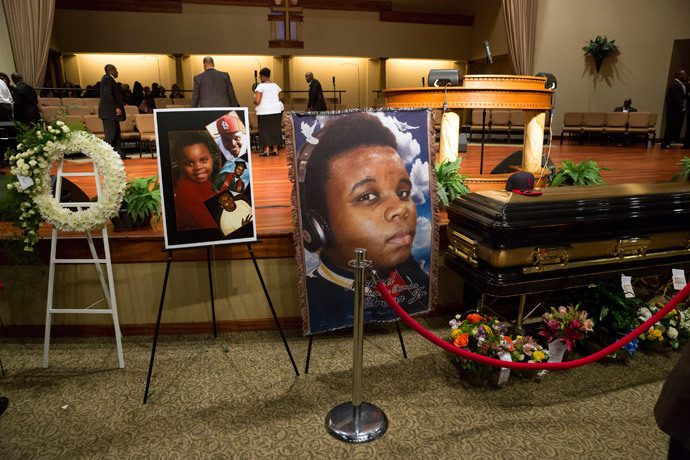Cops quitting after black mayor elected in US town reveals ‘implicit racism’

The resignation of police officers in a Missouri town over “safety concerns” after the election of a black mayor raises questions on US law enforcers’ stance on public safety, Dante Barry, Deputy Director at Million Hoodies Movement for Justice, told RT.
Tyrus Byrd is the first black woman mayor elected in the tiny town of Parma, Missouri. Reportedly five out of the town’s six police employees quit even before the new mayor took office.
RT:80 percent of the Parma police force, and a number of local officials resigned before the newly elected mayor took office. Why?
Dante Barry: [Those are] black resistance and protests matters. Today in St. Louis city we also just saw activists and organizers on the part of the organization Black Struggle claiming victory around the creation of a civilian oversight board. So the fact that 80 percent of this police department quit in response to the election of a black woman- mayor just demonstrates the power of organizing that has happened since August, 9, since Michaels Brown’s death. And protests continue to make waves across the country. It implicitly reveals the challenge that some might have currently with the change that people are filtering, want to come to hold the police accountable to the community that they are supposedly protecting and serving. When we look at this, it just reveals a little bit more of the implicit racism that communities like Ferguson are experiencing every single day.
RT:The officers cited 'safety concerns' in their resignation letters. What did they mean?
DB: We have to really reframe what this question of public safety means. When you have a police department institution that says that it’s designed to protect and serve and they are worried about safety of these officers, or the safety of the community - that brings up a lot of questions. I’m not quite sure what they are afraid of in terms of their safety of having a black woman mayor. But when we come back to that this community is raising, and the communities all around Missouri, Ferguson, and all across this country, we need to rethink about what this fundamental question is when it comes to public safety...
When we ask people what makes them feel safe nine times out of ten they say - they don’t mention the police – it’s having a safe home to go to, having education, having good jobs, having a job, job security. We need to expand this conversation around public safety.

RT:A memorial tree planted in a Ferguson park in commemoration of police victim Michael Brown was cut down in less than 24 hours after it had been placed there. What's your reaction to that?
DB: I’m not too surprised. This is just another attempt to desecrate Michel Brown’s memorial…And we are still treated like this; we are treated without any form of dignity, justice, or fairness. This is a part of a larger cultural issue when it comes to entire blackness. Communities all across the country where black people are seen as criminal, unequal and not even capable of being human, nonetheless, we are not even capable of being remembered...
RT: The incident caused a furor in social media.Do you believe that the situation might escalate and people might go back to the streets again?
DB: Yes, there is a reason to go back on the street. I think that every black person has every reason to go back on the street. ... This is an issue that effects black people every single day and every aspect of our lives... We have a right to call for justice and the right for our lives to be better. This is ultimately a fundamental question about whose lives matter and whether or not black people are seen as humans or not.
The statements, views and opinions expressed in this column are solely those of the author and do not necessarily represent those of RT.
The statements, views and opinions expressed in this column are solely those of the author and do not necessarily represent those of RT.












